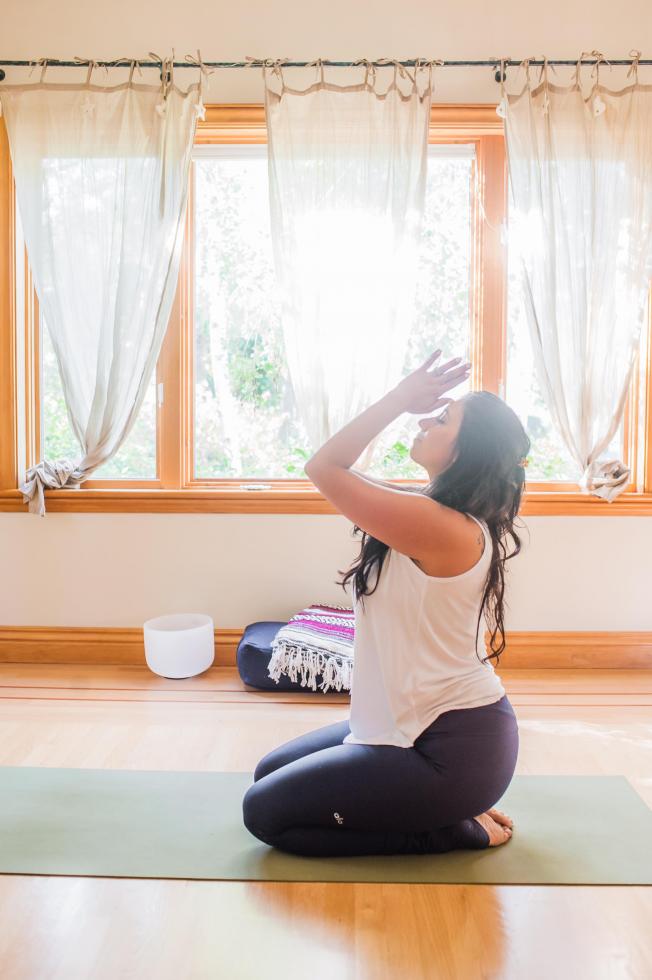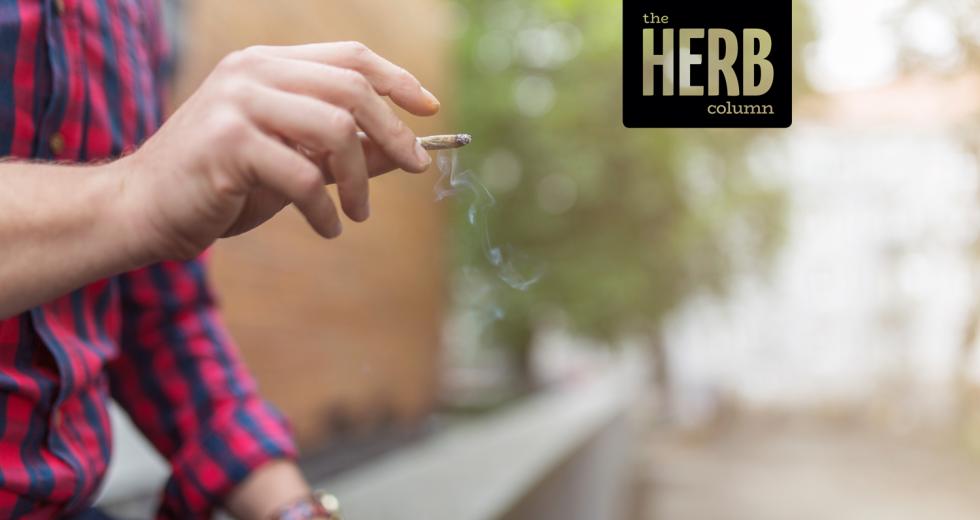Seeing three-dozen people crowd together for an evening yoga class in August was no surprise in Midtown Sacramento, where yoga studios are as common as coffee shops. But it didn’t take long to figure out that this wasn’t a typical yoga class. Instead of grunting and sighing, participants were giggling — a lot.
That’s because right before class, participants gathered on the patio of Antiquité Midtown to consume cannabis. The instructor, Eliza Maroney, who has held cannabis yoga classes in Sacramento, Los Angeles and San Francisco, provided the marijuana to the participants. In addition to her love of yoga, she had been using the class as a marketing opportunity for Lucky Box Club, a Sacramento-based company she co-owns that delivers an assortment of cannabis products.
Related: Can ‘Cottage Cannabis’ Open Doors to Small Operators?
Related: The Great Green Unknown
But the following month, Maroney stopped allowing participants to consume cannabis onsite, after learning that Sacramento’s cannabis enforcement officer said it was illegal. She says she had thought her class was legal because she was technically not selling the cannabis to participants. Instead, she says she was giving the product away. (Participants must be at least 21 years old.)
The state law creates barriers for entrepreneurs interested in the cannabis field. For instance, “cannabis tourism” companies are providing tours of marijuana farms and dispensaries, but they cannot include getting high as part of the trip. Similarly, restaurants cannot include cannabis-infused food on their menus, nor can dispensaries allow patrons to consume samples before purchasing.
Eliza Maroney recently stopped holding her cannabis yoga class
after learning it is not legal in Sacramento — yet. Photo by
Rachel Valley

Uncertainty over where people can consume marijuana can create significant limitations for cannabis businesses. State law largely restricts cannabis consumption to homes. Exceptions are made for cannabis retailers that have consumption lounges and events held at county fairgrounds, such as the High Times Cannabis Cup that attracted thousands to Cal Expo in May. Consumption lounges must be approved by local governments, but only handful are currently operating statewide.
Business owners have approached Sacramento city officials about opening consumption lounges, but the City must first approve a law to allow them, says Joe Devlin, chief of cannabis policy and enforcement. The City Council will discuss a policy in January, he says. Devlin says just about every owner of the city’s 30 dispensaries has expressed opening a lounge.
Kimberly Cargile, owner of A Therapeutic Alternative, says the change would allow her East Sacramento dispensary to offer marijuana consumption to customers who already take advantage of the East Sacramento dispensary’s existing spa services, which include massage and yoga. Customers receiving those services now have to get high at home, if they want an elevated experience. “These services all last about an hour, so people could come in, get high, and by the time they leave, be safe to drive home,” she says.
Yoga, tourism and other cannabis businesses became an opportunity in California last year with the legalization of recreational marijuana. Maroney had seen an increased demand for her classes, which forced her to move from a small Sacramento yoga studio into the much larger Antiquité Midtown for monthly engagements. She originally looked to similar business models in L.A. and the Bay Area to navigate the legal aspects of her classes before starting them this year.
But Devlin says the yoga classes appear to violate current laws against where cannabis can be consumed. Maroney says she has reached out to Devlin, but has decided that she will no longer let class participants consume cannabis onsite.
During the August class, Maroney told class participants that they could get high on Antiquité’s patio. Maroney asked them to use the vaporizer because it creates a less noticeable smell than the pre-rolls. (Vaporizers heat cannabis without burning it.) She says cannabis helps with yoga because it lessens the pain and discomfort of the poses, Maroney says.
“I love cannabis as much as yoga, maybe a little more,” Maroney told the class before leading them in a series of poses. “I really believe in the healing power of the medicine.”
Cannabis yoga can be seen as part of a growing market for health and wellness products and services. The commercial cannabis market is built on a foundation made by medical marijuana, so it should be no surprise that there is abundance of products aimed at better health, including topical solutions to relieve muscle pain and CBD products intended to heal people without getting them high.
But it remains to be seen whether government regulators will allow cannabis yoga or other types of consumption businesses, such as cannabis-infused food at restaurants.
One sign that restrictions may be easing was the State Legislature’s recent passage of AB 2020, which would allow cannabis events to take place in locations other than county fairgrounds. The bill, which must be signed by Gov. Jerry Brown before becoming law, would require local governments to determine if an event location and purpose is appropriate.
To hold a cannabis event, organizers have to get a state license at a minimum cost of $1,000 a year, in addition to other costs depending on how many events he or she holds. While yoga instructors aren’t going to pay that kind of money for a license, they could still benefit from the proposed law, says Brian Applegarth, founder and president of the California Cannabis Tourism Association.
“You’re going to see health and wellness fairs with yoga being offered,” Applegarth says. “This opens up the conversation, because it has been so limited in the past.”
Should the law permit onsite cannabis consumption at restaurants and dispensaries?




Comments
Denver, CO is still grappling with this issue as well. The voters approved I-300 -- an initiative for licensing designated consumption areas -- in 2016, but the city has been negligent in implementing it in a way that works for businesses and consumers. We're working on progress so we have a viable example for other cities and states as legalization spreads!
https://my420tours.com/